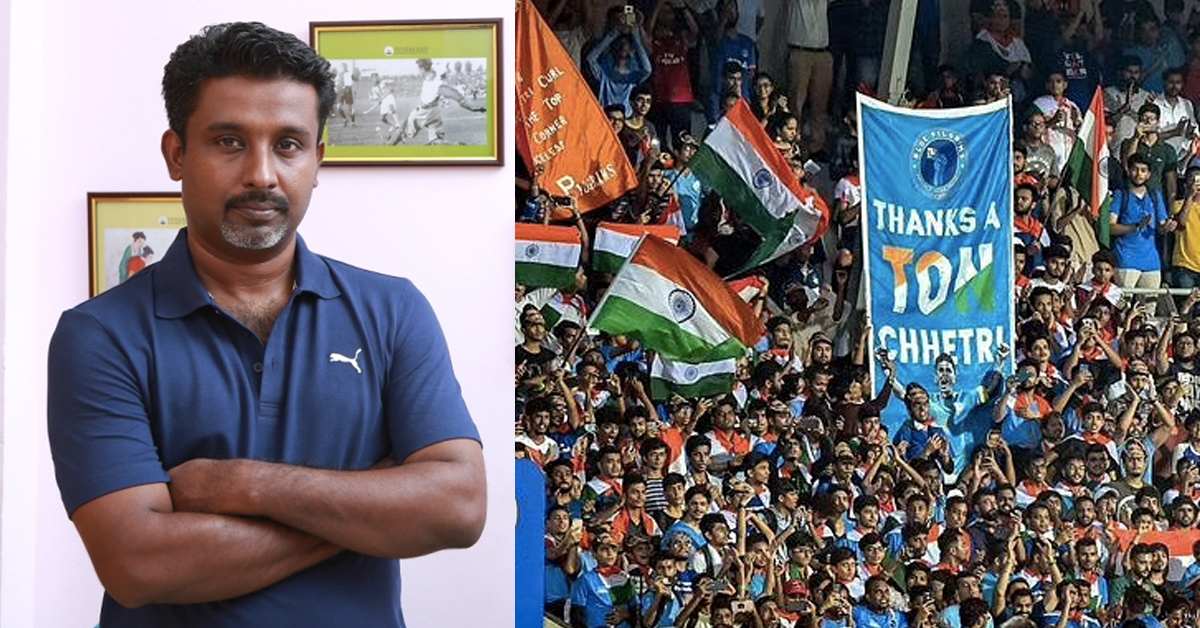Sports Market
Fan-owned cooperative sports club is the need of the hour - Sijin BT of SMRI

The effects of COVID-19 continue to ripple through the world’s health, educational, financial, and commercial institutions, and the sports ecosystem is no different. The nonstop sports entertainment we’ve come to expect has come to a halt. To revive the sports industry in India, the country's premier sports management and sports engineering research and training institute, Sports & Management Research Institute (SMRI), proposes the idea of a fan-owned cooperative sports club. The proposal comes keeping in mind that will steer the economy by creating new employment opportunities and also significantly generate revenue for the government with shelling out a penny.
The Bridge held a conversation with Sijin BT, Chief Sports Architect of SMRI, who explained the rationale behind the idea of a fan-owned cooperative sports club. Sijin drew an analogy of some of the most renowned football clubs of the world like Real Madrid, FC Barcelona, Bayern Munich, Athletic Bilbao, Borussia Dortmund, among others who are owned by its fans and are working based on cooperative principles. He explained, most of the football clubs in Spain and Argentina are owned by the fans. It is mandatory in Germany that a minimum of 51% of the shares of a football club must be with its fans.
He said, "India can take a page out of the book from the classic structure of the UK where over 200 fan-owned football clubs are working under the guidance of Supporters Direct. It is an umbrella organisation set up originally by the British Government (with cross-party support) to provide support and assistance for its member trusts to secure a greater level of accountability and deliver democratic representation within football clubs and within football's governing structures." He adds, "Supporters Direct also works in other sports. It is also funded by UEFA to work in football across Europe."
Sijin then mentions an anecdote from 1957 when A K Gopalan started the Indian Coffee House chain of restaurant in India. It was run by a series of worker co-operative societies to protect the jobs of employees of the Coffee Board and now Indian Coffee House is the most preferred restaurant chain in India.
Features and advantages of fan-owned cooperative sports club
Having a fan-owned cooperative sports clubs comes with its own advantages. No doubt it is owned and controlled by the fans, it is also they who invest money in the club instead of the government's involvement.
Sijin then goes on elaborating the model which he envisions in the Indian fan-owned cooperative club. "In this model, there can be minimum one club in every district and one mother club in the state level. Also, if a club at least three lakh members, with one member equalling one family, it will automatically reach out to three lakh families. Similarly, if the value of one share is Rs 1,000 and the minimum share capital of the club will be Rs 30 crore and the annual turnover of the club will be Rs 100 crore. Such a model can create at least 500 direct employment in the first 3 years and while the club engages in other sports, the employment will be increased proportionately. Also, a football match between two cooperative sports clubs will create 1,500+ temporary jobs."
Benefits to the government
The government can create employment opportunities without spending a paisa. Also, cooperative sports clubs can create a huge economic impact in the local economy like the Indian Premier League (IPL) and Indian Super League (ISL). The cooperative clubs will provide revenue to the government by taking the existing government-owned sports facilities for lease. So the government does not need to spend money on the maintenance of the sports infrastructure. Akin to China's strategic involvement in football business such as co-owning MANCHESTER CITY FC, India can also take some strategic steps in world sports through fans-owned cooperative sports clubs. "Amul spurred India's White Revolution, which made the country the world's largest producer of milk and milk products, fan-owned cooperative sports clubs can ignite the sports revolution in India and can make India a sporting superpower," believes Sijin.
He, however, points out "The government has to make new policy to promote these fan-owned clubs in India and must ensure hassle-free registration. Asia’s first fans-owned cooperative sports society applied for registration in March 2016 did not receive registration yet.
"The benefits of fans-owned cooperative sports clubs will be high for the nation. Therefore, we request the Honorable Prime Minister and Sports Minister to extend the government's support towards promoting and building fan-owned clubs in India. We also urge all sports lovers to sign this petition to promote sports as a sustainable business and employment opportunity," Sijin concludes.
Also read: SMRI is redefining sports education with new pedagogy adopted from Formula 1

